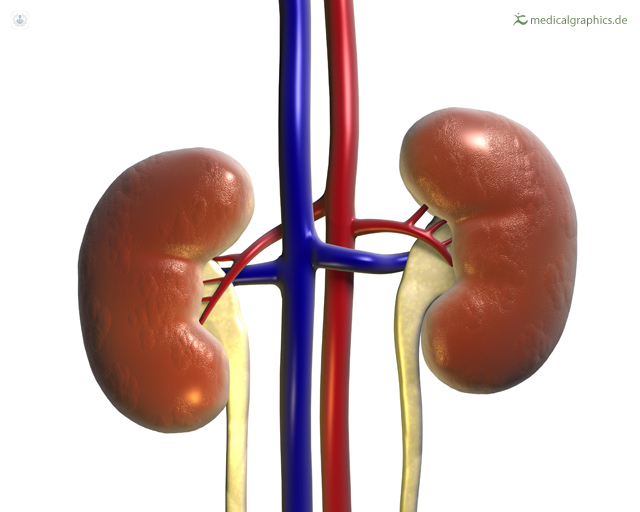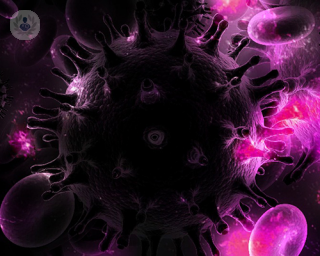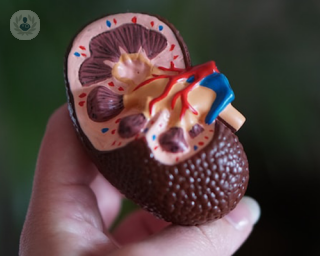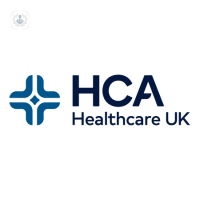
What is nephropathy?
Nephropathy, also known as kidney disease, is any damage or disease to the kidneys. Nephropathy usually causes a loss of kidney function. If enough damage has occurred, you are considered to have kidney failure, a potentially fatal condition where the patient will need dialysis or a kidney transplant to replace the function of their kidneys.
Kidney disease can be classed as nephritis (inflammatory kidney disease) or nephrosis (non-inflammatory kidney disease). It can also be classed as acute (damage occurs over a very short period of time or is related to a single event) or chronic (damage compounds gradually over time).
Diabetic nephropathy
Diabetic nephropathy is damage to the kidneys as a result of type 1 or type 2 diabetes. Consistently high blood sugar levels damage the filtration system of the kidneys over time, with symptoms such as:
- protein in the urine
- loss of appetite
- increased need to urinate
- nausea
- fatigue
Diabetic nephropathy can be prevented by keeping your blood sugar levels under control, which can mean diet control and appropriate insulin intake if you have diabetes. Similarly, treatment involves managing your blood sugar levels as well as your blood pressure and cholesterol levels.
IgA nephropathy
IgA nephropathy, also known as “Berger’s disease”, occurs when the antibody immunoglobulin A is released by your body and gets stuck in the kidneys, causing inflammation. This can cause your kidneys to leak protein as well as blood, which appear in the urine. However, at first you may not notice any symptoms at all and you can have the disease for decades without noticing.
The exact cause of IgA nephropathy is unknown but it is thought to be related to your genes and certain conditions such as infections, coeliac, and liver diseases. It can be treated with steroids, immunosuppressive drugs, ACE inhibitors, and dietary changes.
Hypertensive kidney disease
High blood pressure is one of the leading causes of kidney disease and kidney failure. High blood pressure can lead the arteries around the kidneys to narrow or harden, weakening the blood supply to the kidneys. This leaves the kidneys starved of the nutrients they need, reducing their ability to filter blood and fluids in the body. In turn, the kidneys are unable to release a hormone that helps to regulate blood pressure, and the problem gets worse.
The main treatment for hypertensive kidney disease is medication such as ACE inhibitors and ARB drugs, which act by reducing your blood pressure.
Analgesic nephropathy
Analgesic nephropathy is kidney damage caused by taking painkillers such as aspirin and ibuprofen. These are usually harmless to the kidneys but can cause damage if taken in combination over a long period of time, or if you have an existing condition such as lupus, cirrhosis or heart failure. You are more likely to suffer from analgesic nephropathy if you combine analgesics with caffeine or codeine.
12-17-2015 06-09-2023Nephropathy (Kidney disease)
Professor Liz Lightstone - Nephrology
Created on: 12-17-2015
Updated on: 06-09-2023
Edited by: Aoife Maguire

What is nephropathy?
Nephropathy, also known as kidney disease, is any damage or disease to the kidneys. Nephropathy usually causes a loss of kidney function. If enough damage has occurred, you are considered to have kidney failure, a potentially fatal condition where the patient will need dialysis or a kidney transplant to replace the function of their kidneys.
Kidney disease can be classed as nephritis (inflammatory kidney disease) or nephrosis (non-inflammatory kidney disease). It can also be classed as acute (damage occurs over a very short period of time or is related to a single event) or chronic (damage compounds gradually over time).
Diabetic nephropathy
Diabetic nephropathy is damage to the kidneys as a result of type 1 or type 2 diabetes. Consistently high blood sugar levels damage the filtration system of the kidneys over time, with symptoms such as:
- protein in the urine
- loss of appetite
- increased need to urinate
- nausea
- fatigue
Diabetic nephropathy can be prevented by keeping your blood sugar levels under control, which can mean diet control and appropriate insulin intake if you have diabetes. Similarly, treatment involves managing your blood sugar levels as well as your blood pressure and cholesterol levels.
IgA nephropathy
IgA nephropathy, also known as “Berger’s disease”, occurs when the antibody immunoglobulin A is released by your body and gets stuck in the kidneys, causing inflammation. This can cause your kidneys to leak protein as well as blood, which appear in the urine. However, at first you may not notice any symptoms at all and you can have the disease for decades without noticing.
The exact cause of IgA nephropathy is unknown but it is thought to be related to your genes and certain conditions such as infections, coeliac, and liver diseases. It can be treated with steroids, immunosuppressive drugs, ACE inhibitors, and dietary changes.
Hypertensive kidney disease
High blood pressure is one of the leading causes of kidney disease and kidney failure. High blood pressure can lead the arteries around the kidneys to narrow or harden, weakening the blood supply to the kidneys. This leaves the kidneys starved of the nutrients they need, reducing their ability to filter blood and fluids in the body. In turn, the kidneys are unable to release a hormone that helps to regulate blood pressure, and the problem gets worse.
The main treatment for hypertensive kidney disease is medication such as ACE inhibitors and ARB drugs, which act by reducing your blood pressure.
Analgesic nephropathy
Analgesic nephropathy is kidney damage caused by taking painkillers such as aspirin and ibuprofen. These are usually harmless to the kidneys but can cause damage if taken in combination over a long period of time, or if you have an existing condition such as lupus, cirrhosis or heart failure. You are more likely to suffer from analgesic nephropathy if you combine analgesics with caffeine or codeine.


My eGFR is below normal: Do I have a kidney disease?
By Dr James Pattison
2024-12-26
We learn more about eGFR testing and how results are interpreted in this detailed guide from highly esteemed consultant nephrologist Dr James Pattison. See more


HIV and the kidney
By Professor Jeremy Levy
2024-12-25
Did you know that HIV can cause kidney damage? Top nephrologist Professor Jeremy Levy talks us through the kidney problems HIV can cause. See more


Autosomal dominant polycystic kidney disease (ADPKD): Your expert guide
By Dr Daniel Jones
2024-12-18
Renowned consultant nephrologist Dr Daniel Jones provides his expert insight on autosomal dominant polycystic kidney disease in this informative guide designed for patients, including diagnosis and symptom management. See more
Experts in Nephropathy (Kidney disease)
-
Dr Ravi Rajakariar
NephrologyExpert in:
- Kidney transplantation
- Hypertension (high blood pressure)
- Diabetic nephropathy
- Lupus
- Nephropathy (Kidney disease)
- Dialysis
-
Professor Liz Lightstone
NephrologyExpert in:
- Pregnancy and kidney disease
- Glomerulonephritis
- Proteinuria (protein in the urine)
- Lupus
- Nephropathy (Kidney disease)
- Diabetic nephropathy
-
Dr Peter Hill
NephrologyExpert in:
- Nephropathy (Kidney disease)
- Kidney infection
- Acute kidney injury (AKI)
- Hypertension (high blood pressure)
- Polycystic kidney disease (PKD)
- Chronic kidney disease
-
Dr Andrew Palmer
NephrologyExpert in:
- Chronic kidney disease
- Nephropathy (Kidney disease)
- Urinary tract infection
- Acute kidney injury (AKI)
- Dialysis
- Kidney transplantation
-
Dr Stephen McAdoo
NephrologyExpert in:
- Vascular disease
- Haematuria (blood in the urine)
- Chronic kidney disease
- Proteinuria (protein in the urine)
- Nephropathy (Kidney disease)
- Dialysis
- See all

Cleveland Clinic London Hospital
Cleveland Clinic London Hospital
33 Grosvenor Place
No existe teléfono en el centro.
By using the telephone number provided by TOP DOCTORS, you automatically agree to let us use your phone number for statistical and commercial purposes. For further information, read our Privacy Policy
Top Doctors

OneWelbeck Digestive Health
OneWelbeck Digestive Health
1 Welbeck St, London, W1G 0AR
No existe teléfono en el centro.
By using the telephone number provided by TOP DOCTORS, you automatically agree to let us use your phone number for statistical and commercial purposes. For further information, read our Privacy Policy
Top Doctors

The Outpatients and Diagnostic Centre at 30 Devonshire Street (HCA)
The Outpatients and Diagnostic Centre at 30 Devonshire Street (HCA)
30 Devonshire St, London W1G 6PU
No existe teléfono en el centro.
By using the telephone number provided by TOP DOCTORS, you automatically agree to let us use your phone number for statistical and commercial purposes. For further information, read our Privacy Policy
Top Doctors
-
Cleveland Clinic London Hospital
33 Grosvenor Place, Central LondonExpert in:
- Cardiology
- Colorectal surgery
- Minimal access surgery (keyhole surgery)
- Gallbladder surgery
- Diagnostic Imaging
- Ultrasound
-
OneWelbeck Digestive Health
1 Welbeck St, London, W1G 0AR, W1G Marylebone LondonExpert in:
- Digestive
- Colorectal surgery
- Colorectal
- Gastroenterology
- Acid reflux
- Irritable bowel syndrome
-
The Outpatients and Diagnostic Centre at 30 Devonshire Street (HCA)
30 Devonshire St, London W1G 6PU, Central LondonExpert in:
- Orthopaedic surgery
- Orthopaedic spinal surgery
- Musculoskeletal pain
- Musculoskeletal ultrasound
- Spinal stenosis
- Spinal injections
- See all
- Most viewed diseases, medical tests, and treatments
- Narcolepsy
- Snoring
- Polysomnography (sleep study)
- Alzheimer's disease
- Chronic headache
- Fertility preservation
- Female infertility
- Undescended testicle (Cryptorchidism)
- Autoimmune diseases
- Joint pain







